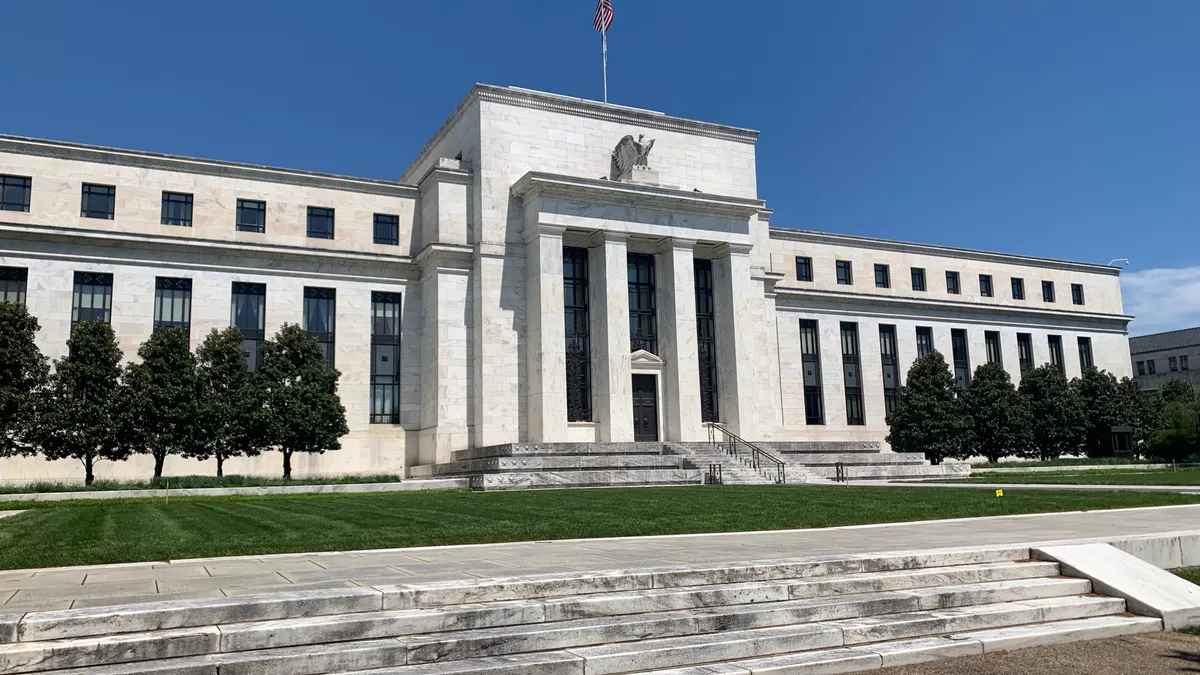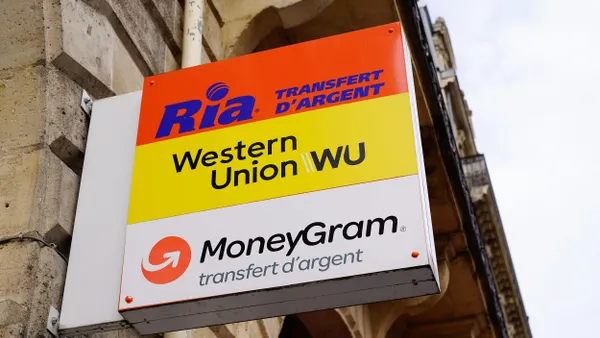Dive Brief:
- The Electronic Transactions Association is taking a keen interest in the Federal Reserve’s consideration of a central bank digital currency (CBDC), so much so it’s regularly engaging with the government on the topic, and recently published a list of seven principles it believes should guide any development of such a new sovereign payment system.
- Any new CBDC should have interoperability with the current payments system; should include participation by the private sector in its “design, piloting and distribution;” and should provide the appropriate safeguards for consumers, the ETA said in its principles posted online earlier this month.
- “We are certainly not opposed to it, but there is no ‘it’ yet,” ETA CEO Jodie Kelley said in an interview. “There are ongoing conversations, which is important.” As far as current discussions with either the Fed or other industry players, her ETA colleague, Scott Talbott, senior vice president of government affairs, said: “We meet with policymakers and ETA members on a regular basis to discuss all aspects of a CBDC and our 7 Guiding Principles.”
Dive Insights:
The association is seeking to influence discussions as the Fed Reserve explores development of a CBDC, which Fed Chairman Jerome Powell has said he is in no hurry to create. China unveiled its own digital currency last month, the United Kingdom also last month formed a task force to study the issue, while Japan is also investigating a sovereign digital currency.
Explorations of new sovereign currencies suited to the digital era come as digital assets like Bitcoin soared in value and popularity earlier this year, though have demonstrated their volatility by declining again more recently. Some advocates of digital currencies and assets contend a digital currency would create a more inclusive financial system.
“The question is: What problem is it that we’re trying to solve for,” Kelley said. “Inherently you have to look at what exists in the world today. If you help low- and moderate-income Americans, then how would CBDC do that, and how would it do it better?”
Kelley said she’s not worried about the U.S. payments system falling behind other parts of the world in developing a government-backed digital currency, and aligns the ETA with Powell’s more measured approach. ”We would agree it is not important to be first,” she said in an interview Wednesday. “It is important to be right.”
The ETA’s principles show a concern for making sure any CBDC can co-exist with the current national and international payments systems and not be disruptive to them, though disruption is what some backers may want.
“A CBDC should require a framework of standards and rules that safeguards the privacy and security of every transaction, protects consumers’ interests, and gives consumers the confidence necessary for in-person and online transactions,” the ETA said in its principles.
The ETA includes some 500 corporate and organization members, from credit card companies to big technology companies like Amazon and Paypal, to fintech upstarts such as Marqeta. Those members processed $21 trillion in transactions last year through various payments systems, the organization says. Like other trade groups, it advocates on behalf of the industry on the federal and state levels.
“The concern (of the ETA) would boil down to ‘let’s ensure anything we do is additive and positive,” Kelley said. “There’s a lot that’s working well so let’s not break anything.”
Along those lines, one of the ETA's principles on the matter underscored the need for proper regulation: “Entities engaging with a CBDC should be subject to regulation that is tailored to the activities and risks that they pose due to their position in the payments ecosystem."
As to whether that will require legislative action to create new laws, Kelley noted there is a framework for protections in place, but acknowledged Powell has suggested that new legislation would be needed.
The ETA’s other principles touched on more general ideas for development of the CBDC, such as the need for innovation and consumer acceptance. "Policymakers should compare the suitability of a CBDC with existing systems and other ongoing improvements to payments infrastructure — such as real-time payments systems — to find the approach that best fits their country’s transactions needs," another principle said.
In some instances, though, ETA members are exploring the issues in private. The organization this week hosted a presentation by Mastercard Vice President Jesse McWaters on the topic of CBDCs and cryptocurrencies, but it didn’t allow press and was mum about the input shared with members.












